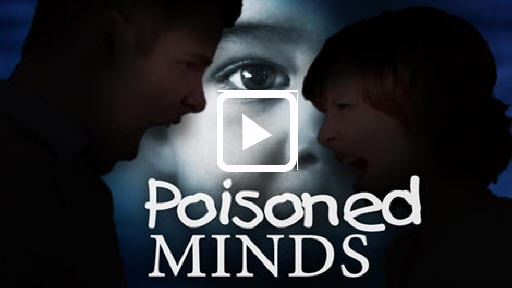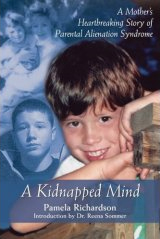![]()
When a lobby group is divorced from reality
The Halifax Herald Limited, By Diane LeBlanc, Wednesday, December 16, 1998
MEN'S GROUPS that petitioned government for changes in the laws affecting divorce are "whining, snivelling deflectors," who cannot stand it when women are given even a modicum of control over their lives.
So concluded Patricia Gallagher-Jette of the New Brunswick Advisory Council on the Status of Women last week in Halifax at a news conference, the gist of which, as near as I can figure, is that only women can be victims of injustice.
The news conference was purportedly called so representatives of the four Atlantic councils on the status of women could respond to the work of a joint parliamentary committee on child custody and access.
It felt more like an exercise in male-bashing, with Ms. Gallagher-Jette leading the way, mocking a male reporter, for example, who asked her to quantify "a fact" that "fathers refuse to exercise access far more often than women deny access."
(Just imagine the outcry if a female reporter had been treated in such a condescending manner by a room full of men!)
The council reps did raise some legitimate concerns. I agree, for example, with their claim that laws should not be rewritten to address the minority of Canadians engaged in drawn-out custody battles.
But I don't think that's what the committee suggests in "For the Sake of the Children." And I don't understand how the agencies that speak for Atlantic Canadian women can dismiss carte blanche 48 recommendations largely aimed at improving the lives of our children.
Yet the women who supposedly represent me had to struggle to find one redeeming feature in the report - finally deciding programs that help parents grasp the destructive effects of divorce might be a good thing, but the concept "needs more study and evaluation."
Good grief. In the end, the council officials sounded a little like the cook who complains that no one ever helps prepare dinner but who won't let anyone else in the kitchen.
They argued, for example, that a recent StatsCan survey confirms that women still have the bulk of responsibility for rearing children - in both intact and post-divorce families.
Why, then, should we want to dismiss men who want to be more involved? And why object to such basic dignities as keeping a concerned father advised of his child's medical conditions or progress at school?
"Shared parenting" is not about equal time. It is, as the report says in one place, about helping to "ensure that neither parent is excluded unfairly from fulfilling that obligation."
The status of women councils painted the picture last week as one solely of gender power.
They are missing the boat on this one. Intelligent women realize that the (male-dominated) legal system has consistently awarded women the custody and care of children (about 86 per cent of children of divorce are in the custody of mothers). And many understand that men's groups see these legal precedents as reason to lobby for change in much the same way that women's groups lobbied for better financial support.
If equality is the goal, why not share the "power" we have, to improve the odds for our kids?
The status of women folks say the joint parliamentary committee has taken a simplistic approach to divorce that ignores the role that domestic violence can play. They tout as support the violence-against-women statistic that says one in four Canadian adult women face violence from a male partner in their lifetime. They are overplaying that card. The fact that I dated (and dumped) a loser when I was 23 or 24 makes me part of that rather large statistical group. It's totally irrelevant, however, to this discussion.
Besides, legitimate concerns for safety are best served by recommendations like the one that says any child who refuses to have contact with a parent could be revealing "a significant problem" and should be referred for assessment and possible help. Unsaid but understood: either parent could be harming a child, intentionally or not.
Because - in this case - gender just doesn't matter.











